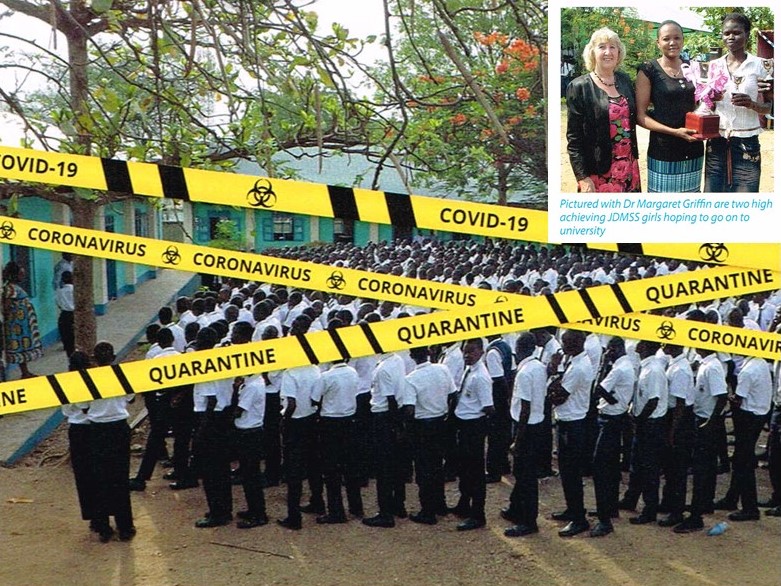
According to the World Bank (1) South Sudan, one of the world’s newest countries “remains in a serious humanitarian crisis due to the cumulative effects of years of conflict which has destroyed people’s livelihoods”. Also, “about 82% of the population in South Sudan is poor”. An educated workforce is essential to improve the democratic and economic prospects of underdeveloped countries such as South Sudan.
Secondary education is not free in the country. Sadly, many children finish their education after primary school – with just a basic level of literacy and numeracy because the cost is beyond the means of their families. Additionally, many girls are deprived of education as, traditionally, preference has been given to educate boys. The lack of proper education perpetuates a cycle of poverty and deprivation through generations.
The aim of this Juba project was to offer the opportunity of secondary education to talented students from poor families. Academic success should help provide a springboard to a more prosperous future – for example, by helping youngsters secure a good job in industry or government. Other youngsters could, potentially, progress to universities and pursue a high-level professional career. A good education, and long term employment should benefit the student and his/her family.
The project was planned to last a total of four years, starting in January 2017, with completion in December 2020.
In Year One, 60 students, both girls and boys from selected poor families, were sponsored with bursaries. The school has achieved a reputation for excellent education and very high grades at examinations. The cost of the first three year’s bursaries was: Year 1 – US$14,608, Year 2 – US$9,963, Year 3 – US$9,180.
Following some difficulties with funding, our Club took on additional fundraising activities (such as our Open Farm Day held in 2018) and significant additional money was raised, largely through personal donations from Members. The way in which Joint Pentangular Projects was also adjusted to address the funding shortfall.
While many of the students were doing remarkable well in their studies, Covid-19 meant that the school, as with other schools in South Sudan, had to close during this spring. Throughout the closure, the school has continued to provide support to students, with teachers setting worksheets to be completed at home and marking the worksheets handed in by the students. The school was the only one in the country to provide this support for its pupils and its efforts have been commended by the government of South Sudan.
The school has re-opened and all 34 bursary students are back. There is a high level of confidence that students taking their final examination this year will be successful.
Undoubtedly, given the country’s situation and the current pandemic the school will face further problems ahead – but our Club is happy to have made a difference to the education and success of the youngsters that it has supported.
Picture: Image from Juba School Newsletter; Inset shows a picture of our Past President Margaret Griffin during a previous visit to the school.
Source: (1) https://bit.ly/3jB5SMR


